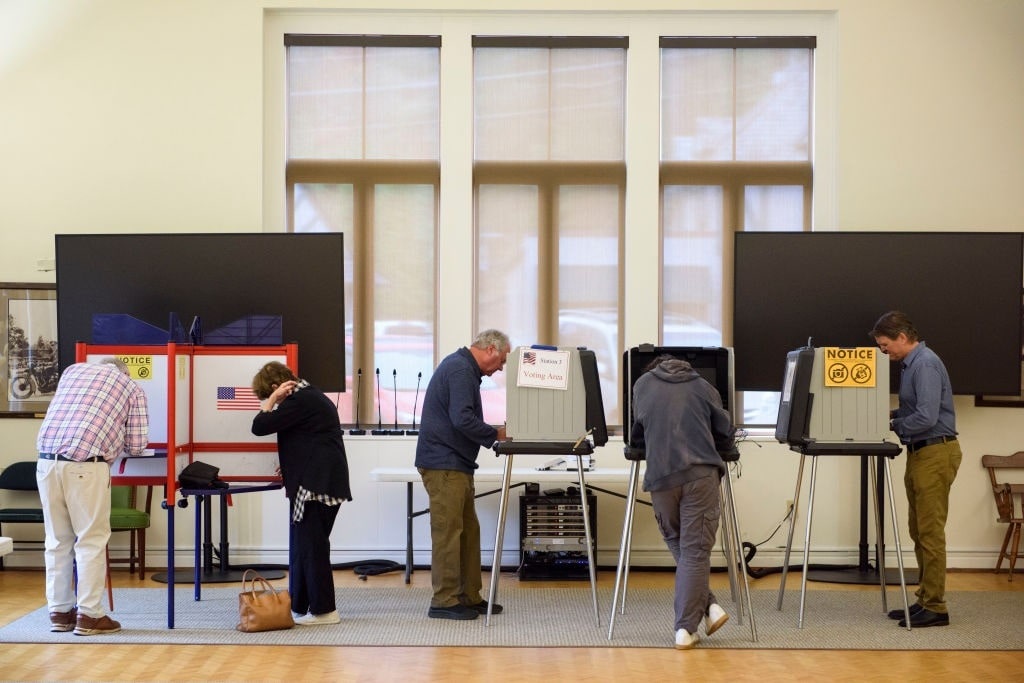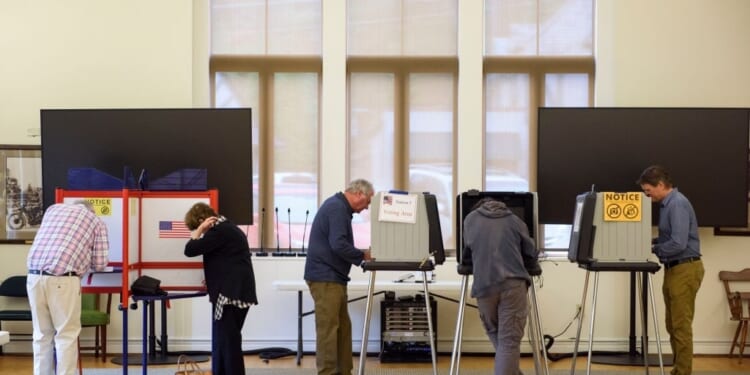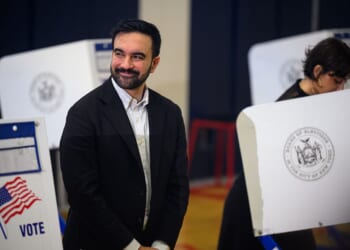
US Supreme Court addresses race-based districting.
The state of Louisiana has become the focal point of longstanding tensions between the well-intentioned goals of the Voting Rights Act of 1965 to prevent racial discrimination and the specific provisions of the Constitution mandating that all citizens be treated equally, regardless of skin color. The Supreme Court heard oral arguments on Oct. 15 in Louisiana v. Callais, a dispute that has profound implications for future elections in the United States.
Voting Equality vs Equity
Mainstream media headlines inveigh against the conservative menace of “gutting” the Voting Rights Act. The political stakes of the Supreme Court’s resolution of Louisiana’s struggle to comply with conflicting federal mandates will impact the entire nation, but the core legal issue is how to reconcile the race-focused provisions of the Voting Rights Act with the colorblind aspirations of the Fourteenth Amendment’s Equal Protection Clause and the voting guarantees of the Fifteenth Amendment. (The Fifteenth Amendment prohibits federal and state governments from denying or abridging a citizen’s right to vote “on account of race, color, or previous condition of servitude.”)
Behind this legal tension lies a growing friction in modern American society between the “I have a dream” goals of Martin Luther King Jr. (and the nation’s founders), in which racism is eradicated and all are equal, versus the “equity” arguments of the social justice movement. Under this view, persistent racial disparities that the far left attributes to “systemic racism” must be reversed through a race-based “equity” lens that affords so-called marginalized folks preferential treatment by the government in order to atone for past racism on the part of the majority white population.
Justice Ketanji Brown Jackson tapped into this vein of racial angst during oral arguments on Oct. 15, when she equated the alleged voting disadvantages of black voters with a physical disability under the Americans with Disabilities Act (ADA):
“My, kind of, paradigmatic example of this is something like the ADA. Congress passed the ADA against the backdrop of a world generally not accessible to people with disabilities.
“I guess I don’t understand why that’s not what’s happening here. The idea in section 2 [of the Voting Rights Act] is that we are responding to current-day manifestations of past and present decisions that disadvantage minorities and make it so that they don’t have equal access to the voting system, right, they’re disabled. … These processes are not equally open.”
Social Justice or Reverse Racism?
This position jibes with the social justice ideology that has swept the nation, inflaming tensions by attributing all racial disparities to white supremacy. Yet it is a fatuous argument to aver that skin color is the equivalent of a physical or mental disability: Many black citizens are thriving millionaires, and many whites struggle in squalor. The nation has even elected a “president of color.” This hardly seems the same as wheelchair-bound paralytics struggling to navigate stairways in public facilities.
Jackson is bypassing a fundamental and unavoidable legal hurdle: the Supremacy Clause of Article VI, Clause 2, which holds that the Constitution is “the supreme Law of the Land.” If the Voting Rights Act contains provisions that conflict with the Fourteenth and Fifteenth amendments, it is unconstitutional regardless of social justice justifications. A constitutional amendment is required to alter the Constitution, not an act of Congress such as the Voting Rights Act.
Justice Clarence Thomas has written in a previous opinion that “I am hopeful that this Court will soon realize that the conflict its Section 2 jurisprudence has sown with the Constitution is too severe to ignore.” Jackson would require states to craft voting districts in accordance with racial demographics, even in the absence of a showing of racial prejudice. The plaintiffs in Louisiana v. Callais argue that this is unconstitutionally racist.
Damned Either Way
Louisiana’s predicament displays the “damned if we do, damned if we don’t” legal dilemma: If the state creates strained, artificial “majority-minority” voting districts to ensure two majority-black voting districts (rather than the single district drawn after the 2020 census, despite approximately one-third of the state’s population being black), it is complying with the Voting Rights Act while offending the Fourteenth and Fifteenth amendments. The resulting second district is contorted far beyond geographical logic. However, if Louisiana formed districts based solely on geography, there would be only a single “majority-minority” district, and the state would be complying with constitutional equality while violating the “racial equity” goals of the Voting Rights Act.
The outcome of this struggle to reconcile conflicting laws will doubtless fuel disparate ideological visions for the nation. Those on the left seek to preserve the Voting Rights Act and bend the Constitution to achieve what they perceive as fairness. Those on the right who embrace a colorblind America where voters are not categorized or stereotyped by skin color hold that the Constitution is paramount, and what is being accomplished in the name of equity is simply reverse discrimination.
Politico recently highlighted the volatile political implications of the Supreme Court’s forthcoming decision:
“Democrats are already sounding the alarm on the impact that the Supreme Court’s decision could have on next year’s midterms, warning Republicans could draw as many as 19 new House seats in states they control and, in the process, could oust nearly a third of the Congressional Black Caucus.
“But it’s unclear if the Supreme Court will rule quickly enough for state legislatures to act before primary contests, which start as early as March in some states.”
Regardless of whether the fate of Louisiana’s voting district system is determined in time to influence the 2026 elections, the weighty outcome will surely provoke partisan wrangling. Whichever way the Court rules, both sides will claim they are fighting fiercely for the future of American democracy.
Dig Deeper Into the Themes Discussed in This Article!
Liberty Vault: The Constitution of the United States
Liberty Nation does not endorse candidates, campaigns, or legislation, and this presentation is no endorsement.

















